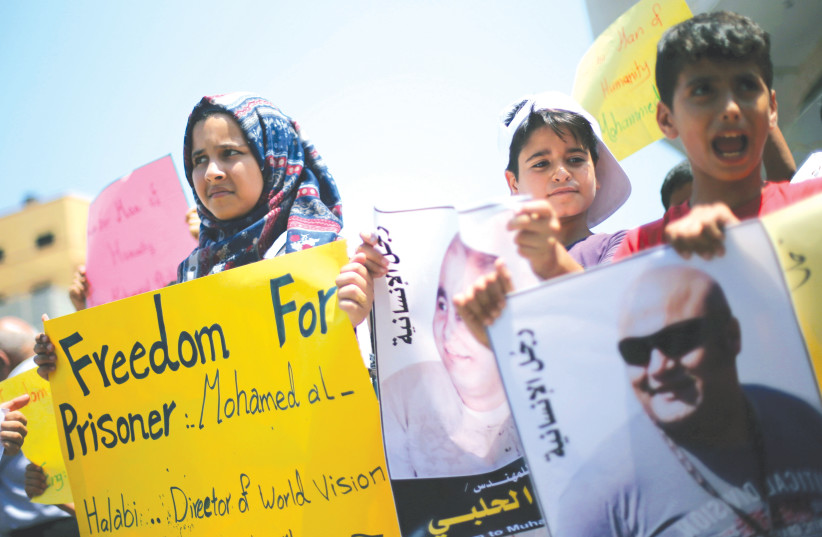The High Court of Justice on Monday ordered the trial court to schedule a date for its verdict in the case of World Vision defendant Mohammad el-Halabi by Thursday – around six years after his arrest.
In a hearing about whether to extend Halabi’s detention for another 90 days, despite previous expectations that the verdict would come out before May, the justices finally seemed to have lost patience with the Beersheba District Court which has tried the case.
In February, the court extended his detention for 90 days, indicating it had gotten indications from the Beersheba District Court that this could be a final extension before the verdict.
The decision was not published due to much of the case being under gag order, but The Jerusalem Post confirmed the extension.
But seeing that the lower court was still dragging its feet on issuing a verdict, this time the High Court explicitly demanded that the lower court notify it in writing by Thursday about exactly when the verdict will be issued.

Sources indicated there may also be complications related to the trial court judge retiring.
The state prosecution accused Halabi of assisting Hamas on the side to his humanitarian work, however, he claims the charges were made to delegitimize Palestinian civil society.
His case has come before the High Court dozens of times since his August 2016 indictment, but each time the justices have extended his detention pending a verdict in the trial.
The long-delayed and time-consuming trial ended with closing arguments in July and October 2021. It is unclear what is delaying the verdict.
Halabi has vehemently denied the charges and accused the prosecution and the Shin Bet (Israel Security Agency) of manufacturing charges, coercing a confession in order to undermine humanitarian organizations in Gaza and dragging out the case.
To date, only the defendant has been unloading on the prosecution, with the state refraining from responding publicly due to concerns of revealing classified intelligence.
Halabi was indicted in August 2016 for smuggling $7.2 million a year to Hamas for buying weapons and building attack tunnels.
This was instead of the money being used by World Vision for food, humanitarian assistance and aid programs for disabled children.
Neither World Vision nor an Australian government audit found the wrongdoing allegedly uncovered by the Shin Bet.
Since March 2021, more allegations have come out from Halabi’s side, including that he was fooled by an undercover informant in detention into confirming details that the informant kept pressuring Halabi to confirm.
According to the defense, Halabi told law enforcement that the confession was coerced from the first moment they raised it with him, and that the original document recording the confession was lost by police.
The defense says that the case should have been tossed in light of the circumstances in which the confession was given and that the police record of what was said is an inauthentic photocopy, raising questions of a police cover-up.
In addition, the defense has claimed that World Vision did not even transfer any materials to Gaza at some of the crossing points where the prosecution says Halabi made illegal transfers to Hamas.
The Post has learned that although these allegations were new to the public, the prosecution has been aware of them and responded to them behind closed doors throughout the trial.
While the prosecution’s responses are classified at this stage, it appears that the prosecution would acknowledge using an undercover informant, but would say that this is a standard approved tactic and that no illegal pressure was applied.
Moreover, the prosecution would point out that the court already rejected any allegations of a coerced confession earlier in the case and that the only question left to the court is how much weight to give the confession.
